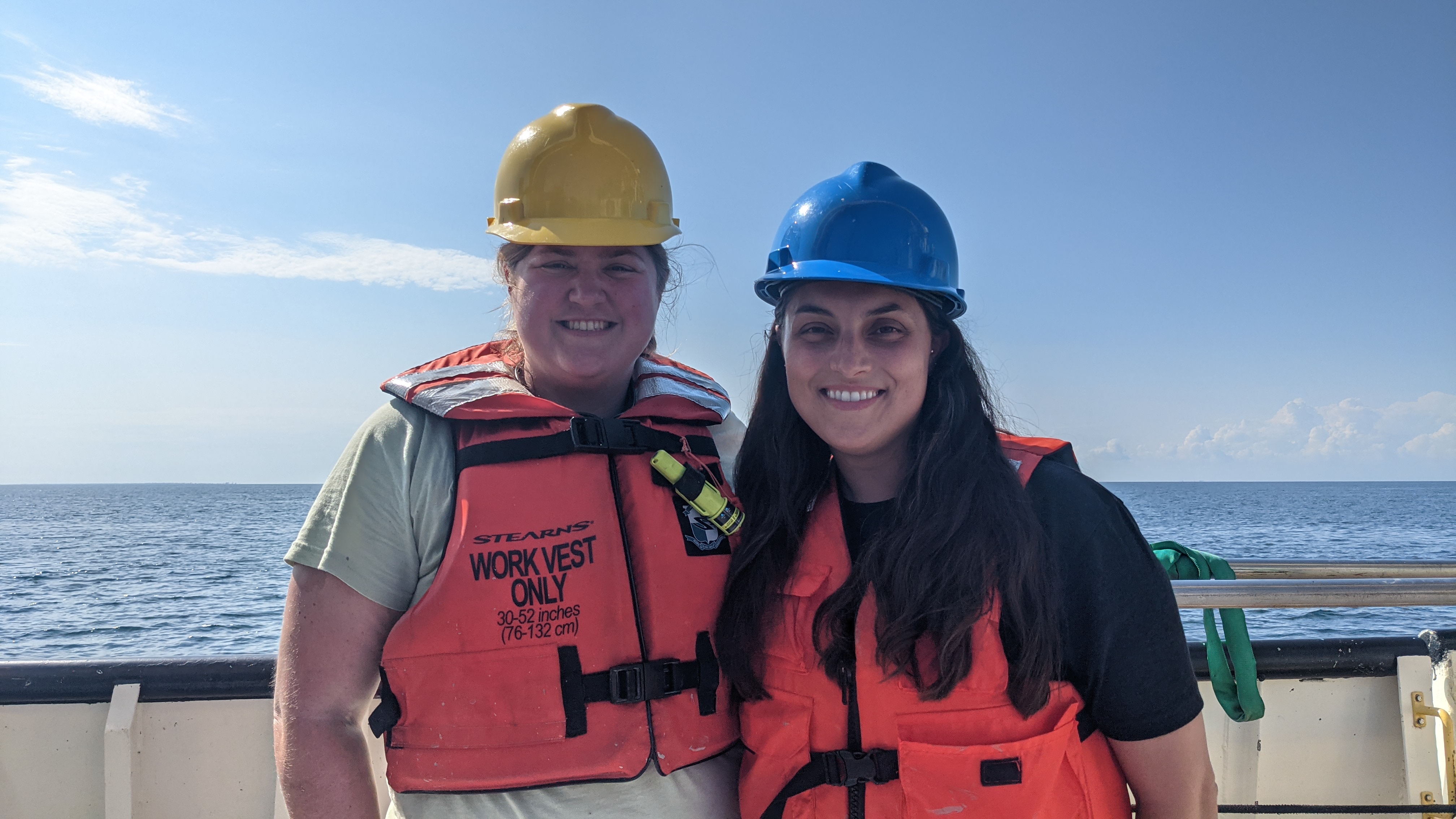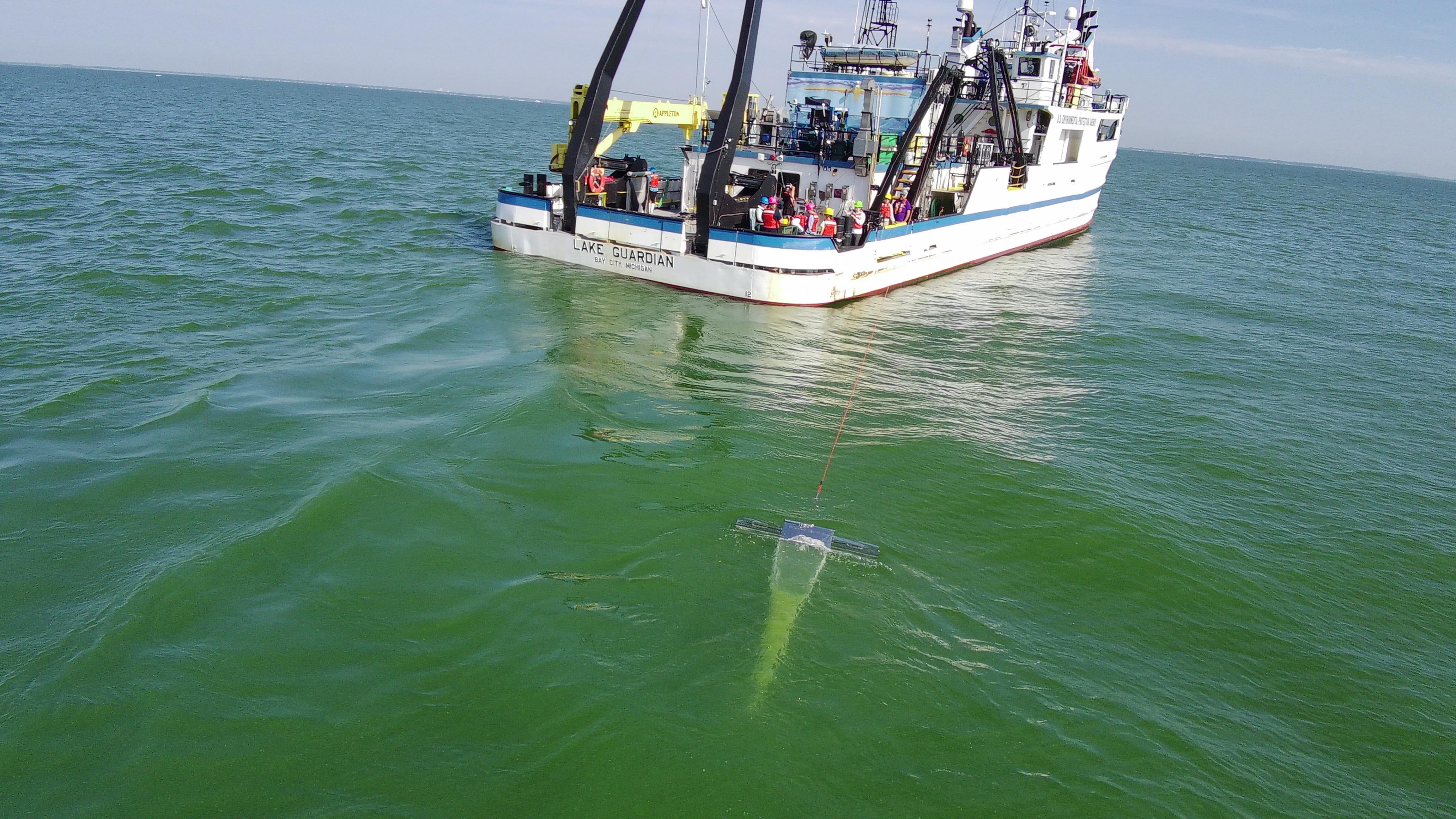'All of us can do small things to protect our Great Lakes'
Michigan educators bring back lasting memories, lessons learned during Shipboard Science Workshop.

A whirlwind week of science research in July, both sailing on Lake Erie and some landside activities, left two Michigan educators eager to share what they have learned with others. The two joined 13 other educators along with scientists and Sea Grant staff for the 2024 Shipboard Science Workshop aboard the U.S. Environmental Protection Agency (EPA) Research Vessel (R/V) Lake Guardian.

Sabrina Deschamps, an outreach interpreter for the Huron-Clinton Metroparks; and Laura Elwood, a biology teacher at Notre Dame Preparatory School in Pontiac, agree the experience was exciting and energizing and encourage other educators to apply to attend the 2025 workshop. While it was a little challenging learning how to live on a ship, Deschamps said one great memory was “the camaraderie we all had (educators, facilitators, scientists, and crew) and the relationships we made. It was a joy being around other educators from the Great Lakes region and learning alongside them. They all served as great reminders of how FUN science can be!”
“I would absolutely recommend other teachers to apply,” Deschamps added. “Not only will they get hands-on experience working alongside Great Lakes scientists, but they will also learn so many activities that they can take back to their classrooms to teach Great Lakes literacy to their students. They will get a lot of great resources too!”
While on board, Deschamps was part of the microplastics research team. “It was extremely eye opening to learn about the plastic pollution in the Great Lakes. The opportunity to get real hands-on experience with sampling, data collection, and analysis was great,” she said. “I will definitely be incorporating that into future lessons.”
After a beach cleanup in Erie, PA, Elwood remembers, “I was amazed how much plastic was on the beach since a lot of it was under 5 mm big. We only collected plastic for just under an hour but were able to collect over 1200 pieces of plastic. My biggest takeaways were that the amount of plastic has quadrupled in the past ten years with most of the plastic as nurdles which are under 5 mm.”
Elwood was in the group focused on the composition of benthic organisms at the bottom of the lake, particularly invasive zebra and quagga mussels. “There are now mostly quagga mussels instead of zebra mussels on the bottom of the lake, which are filtering out the beneficial algae but leaving behind the toxic bloom algae, affecting our food chains in the lakes,” she said.

Workshop educators shared more details about their daily schedule, experiences and research in a 2024 Shipboard Science Workshop StoryMap.
“This opportunity made me appreciate the gem of a resource that we have at our fingertips even more,” said Elwood. “We need to actively work on managing the invasive species and plastic that we are allowing into our Great Lakes. A big point that I took away was that many people doing a few things leads to huge results overall. All of us can do small things to protect our Great Lakes.”
The workshop experience is organized annually by the Center for Great Lakes literacy (CGLL), which is a collaborative effort led by Sea Grant educators throughout the U.S. Great Lakes watershed. It is made possible through a partnership with the EPA and National Oceanic and Atmospheric Administration (NOAA), and with funding from the Great Lakes Restoration Initiative. CGLL fosters informed and responsible decisions that advance basin-wide stewardship by providing hands-on experiences, educational resources, and networking opportunities promoting Great Lakes literacy among an engaged community of educators, scientists, and youth. Hosts for the 2024 workshop were CGLL partners Ohio Sea Grant and Pennsylvania Sea Grant.
Michigan Sea Grant helps to foster economic growth and protect Michigan’s coastal, Great Lakes resources through education, research and outreach. A collaborative effort of the University of Michigan and Michigan State University and its MSU Extension, Michigan Sea Grant is part of the NOAA-National Sea Grant network of 34 university-based programs.
This article was prepared by Michigan Sea Grant under award NA22OAR4170084 from the National Oceanic and Atmospheric Administration, U.S. Department of Commerce through the Regents of the University of Michigan. The statement, findings, conclusions, and recommendations are those of the author(s) and do not necessarily reflect the views of the National Oceanic and Atmospheric Administration, the Department of Commerce, or the Regents of the University of Michigan.



 Print
Print Email
Email

